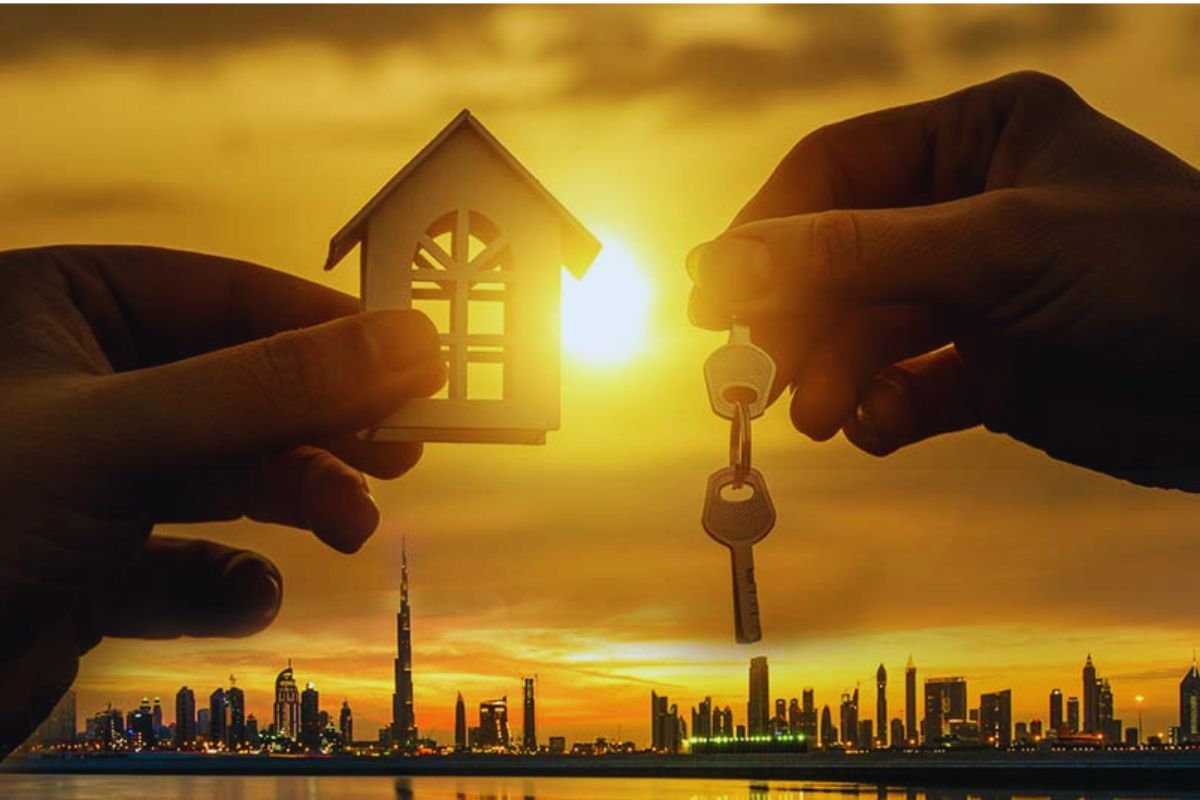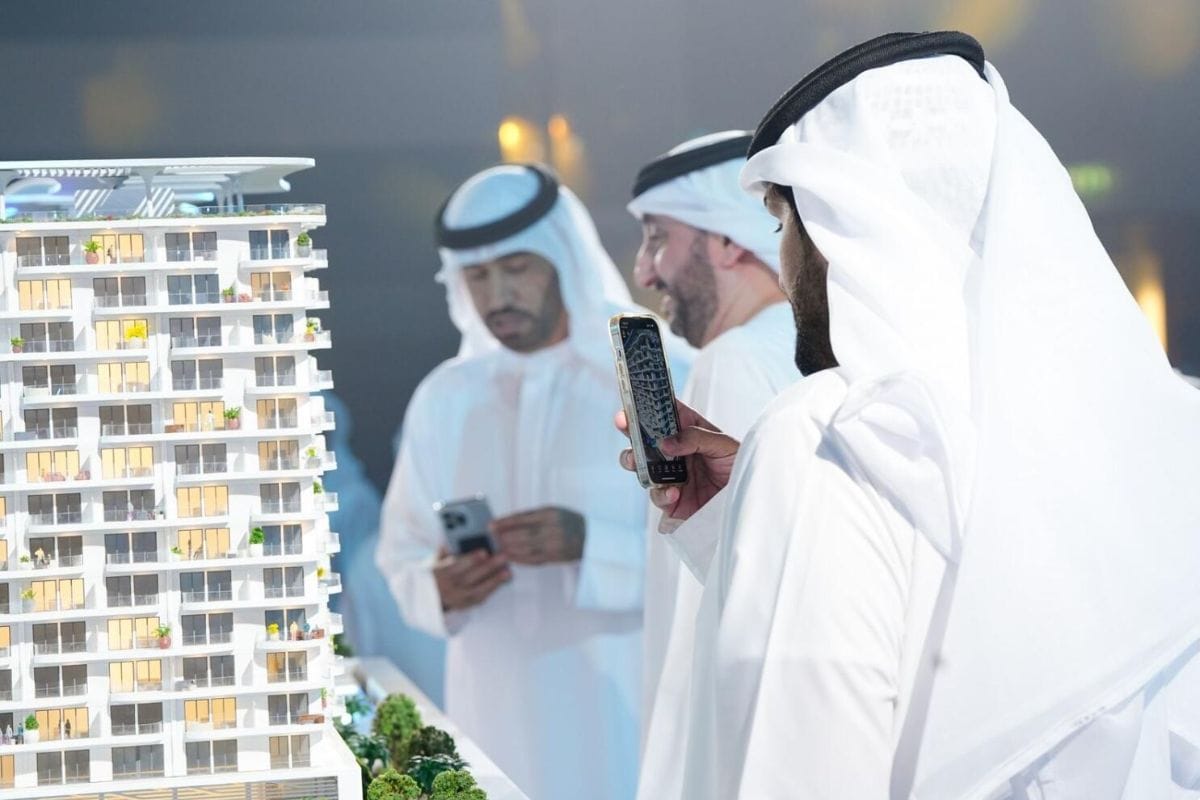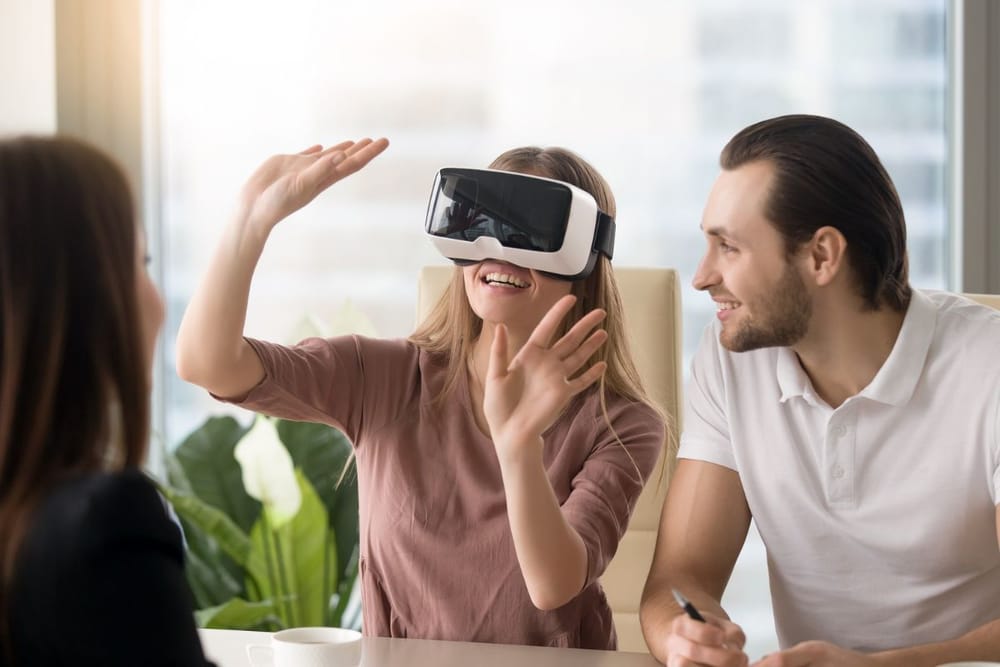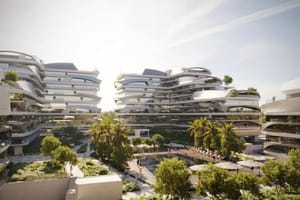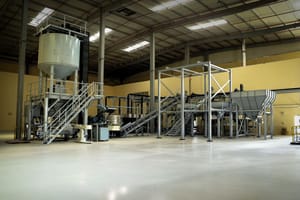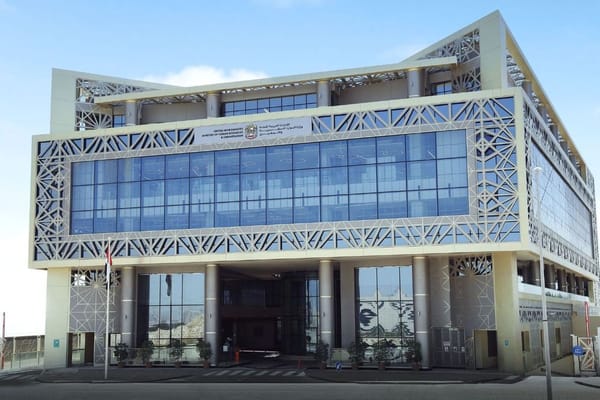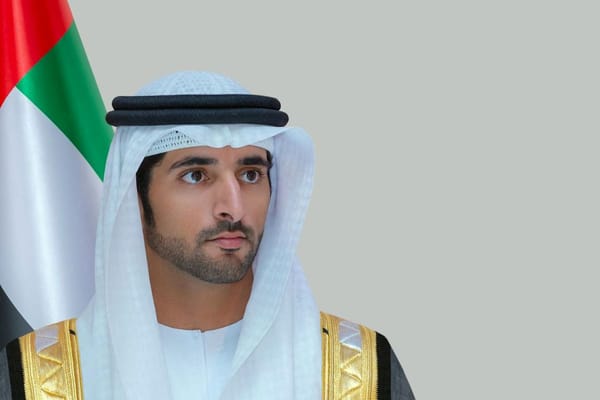Dubai’s real estate market is renowned for its dynamism and luxury, featuring some of the most iconic properties and high-end developments globally. With a fast-paced market and a diverse range of properties, finding the right home or investment can be both exciting and challenging.
Enter virtual reality (VR), a technology that’s increasingly transforming how real estate transactions are conducted. VR offers an immersive experience, allowing potential buyers to explore properties from the comfort of their homes. This technology is not just a novel trend; it’s becoming a critical tool for showcasing Dubai’s real estate offerings.
By integrating VR into real estate tours, Dubai is setting a new standard in property viewing. Prospective buyers can now walk through properties, explore every detail, and even visualize future developments without ever stepping foot inside. This shift is making the property search process more efficient and accessible, significantly enhancing the buying and selling experience in Dubai’s competitive market.
What is Virtual Reality in Real Estate?
Virtual Reality (VR) in real estate allows potential buyers and renters to explore properties remotely through immersive digital experiences. Instead of visiting multiple homes or commercial spaces in person, users can take virtual tours from anywhere, using VR technology.
How VR Transforms Real Estate:
- With VR, users can walk through a property and view it as if they were physically there. This includes exploring different rooms, viewing details up close, and getting a feel for the layout and space.
- VR allows users to interact with the property by clicking on features to get more information, like details about materials or dimensions. They can also visualize changes or renovations in real time.
- For buyers, VR saves time by reducing the need to visit multiple properties. For sellers and agents, it provides a broader reach to potential buyers who may be located far away, increasing the property’s exposure and potentially speeding up sales.
Components in Real Estate VR:
- VR Headsets: These devices let users immerse themselves in the virtual environment of the property. They provide a 360-degree view of the space.
- 3D Modeling Software: This software creates accurate and detailed virtual representations of the property. It allows for realistic simulations and interactive elements.
- 360-Degree Cameras: These are used to capture high-resolution images or videos of the property, which are then used to create the virtual tour.
Benefits of VR for Buyers and Sellers
For Buyers:
- Utilize VR headsets or computer applications to access high-resolution 3D models of properties, allowing for detailed exploration without geographical constraints.
- Save on costs related to travel, accommodation, and physical property visits, which can be significant for long-distance buyers.
- Interact with immersive, high-definition virtual tours that simulate real-world experiences, including spatial dimensions and design elements, leading to a better understanding of property layouts and features.
For Sellers:
- Leverage VR platforms to present properties to a global audience, increasing the potential pool of interested buyers and enhancing market reach.
- Minimize expenses associated with physical staging, frequent property showings, and marketing materials by investing in a one-time VR setup that can be reused and shared digitally.
- Utilize analytics from VR tours, such as viewer engagement metrics and interaction data, to gauge buyer interest and streamline the sales process, potentially leading to faster offers and closings.
How is VR Shaping Success in Dubai’s Real Estate Market?
Virtual Reality (VR) is transforming Dubai’s real estate market by offering immersive property tours that attract more buyers and streamline sales. Here’s how VR is driving success in the market.
Emaar Properties:
- Implementation: Emaar, one of Dubai's leading real estate developers, has integrated VR technology into its sales process for several of its luxury residential projects. They use VR to offer virtual tours of properties like those in the Burj Khalifa and Dubai Creek Harbour.
- Outcome: This approach has enhanced customer engagement and provided a more immersive experience, allowing potential buyers to experience high-end properties before making a decision.
DAMAC Properties:
- Implementation: DAMAC has incorporated VR tours for its projects, including luxury villas and high-rise apartments. Their VR solutions allow prospective buyers to explore various properties remotely.
- Outcome: By offering a virtual walkthrough, DAMAC has been able to reach international clients and provide a comprehensive view of their properties, contributing to increased sales and interest from overseas investors.
Betterhomes:
- Implementation: Betterhomes utilizes VR technology to offer 360-degree tours of listed properties. This allows potential buyers to explore different aspects of the homes and make more informed decisions.
- Outcome: The agency has reported higher engagement rates and a reduction in the time required to finalize sales due to the immersive nature of VR tours.
Are Virtual Tours Enough to Make Your Decision?
- Virtual tours can’t fully replicate the physical experience of a property, missing out on sensory details like ambient noise and natural light.
- The digital representation of a property might not perfectly match reality, with potential discrepancies in lighting, scale, and color.
- Emotional responses, which influence many buyers, are harder to gauge through a screen, making physical visits crucial for making a decision.
- Virtual tours are useful for initial property exploration but should be followed by in-person visits to verify the property’s condition and meet with agents.
- Combining virtual tours with physical visits provides a comprehensive view, balancing convenience with thorough evaluation.
Challenges and Considerations
- The initial cost of VR technology, such as headsets and content creation, can be high, which may be a barrier for smaller agencies.
- Quality of VR content is crucial; low-resolution or poorly rendered tours can misrepresent properties and reduce engagement.
- Accessibility can be an issue since not everyone has VR headsets or is familiar with the technology, potentially limiting its reach.
- Usability concerns include motion sickness and a learning curve, which can affect the overall experience for users.
Future Trends in VR for Real Estate
Technological Advancements
Upcoming Innovations:
- Future VR technology is expected to provide even more lifelike and detailed property visualizations, with improvements in resolution, texture, and overall realism. This will make virtual tours even more immersive and accurate.
- Innovations will likely include more interactive features, allowing users to customize and interact with virtual spaces in real-time. This could include changing decor, experimenting with different layouts, or even simulating lighting conditions.
- As VR technology evolves, the cost of high-quality headsets and equipment is expected to decrease, making it more accessible to a wider range of users and real estate professionals.
Integration with Other Technologies
Combining VR with AR:
- By combining VR with AR, users could overlay virtual elements onto real-world environments. For example, potential buyers could use AR to view furniture or decor in their current space or see how changes to a property would look in real time during a VR tour.
- AR could provide additional information and interactive features within a VR tour, such as displaying property specs, neighborhood details, or even virtual staging elements.
Incorporating AI:
- AI can analyze user preferences and behaviors during VR tours to offer tailored property suggestions and enhancements based on their interests and needs.
- AI-driven virtual assistants could guide users through VR tours, answer questions, provide additional information, and help with navigation to improve the overall experience.
Virtual Reality is revolutionizing the real estate market in Dubai, offering a new dimension to property tours. As technology advances, VR will provide even richer, more personalized experiences for buyers and sellers. With exciting developments on the horizon, VR is set to redefine how we interact with real estate, making property exploration more accessible and engaging than ever before. Keep an eye on this transformative technology as it continues to shape the future of real estate.
Also Read:
